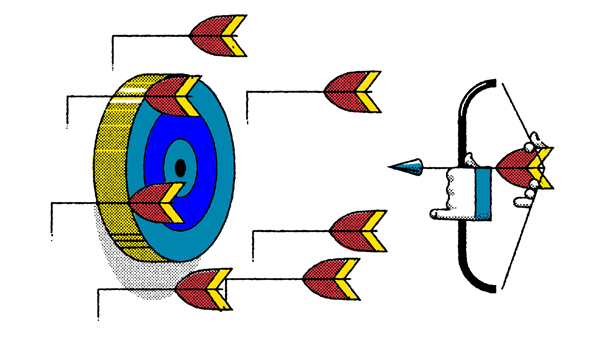
1. Solving the wrong problem
How often have you discovered that what you have solved and what the client had in mind are very divergent?
The problem is that we do not invest adequate time to understand the stated as well as latent needs of clients. We need to have a clear understanding of:
- What are the symptoms of the problem?
- How do these symptoms impact management performance?
- Are these symptoms: Specific? Observable? Measurable?
- Is the problem of a size that is manageable by a third-party consultant?
2. Only hearing. Not listening
Consultants need to ask questions. Clients need to listen. Clients need to ask questions. Consultants need to listen.
Only when the listening bridge is successful, can the communication be clear. But this does not always happen.
The communication skill of listening has never been taught. In school we are taught seeing, reading, speaking, writing, hearing…but not listening!
Listening comes in two avatars: sympathetic listening and empathetic listening. In sympathetic listening I can agree even though I do not understand. In empathetic listening I first seek to understand and may subsequently choose to disagree.
Consultants must learn the art of empathetic listening.
3. Considering root cause identification as the end of an assignment
A problem is solved only when the remedy is implemented, and results recur. Unfortunately, most consulting assignments end when the root causes have been established.
So, we generate reports. We also generate supplements to these reports. We sprinkle terms and charts that are trendy. In the process we ensure that nobody understands the final report. Then we make PowerPoint presentations to upper management of the client who are far removed from the original problem.
The report gathers dust. There are no results. The consultant loses a reputation.
The success of a consulting assignment is measured by the traceable recurring results generated after the remedial actions have been implemented. Has market share increased? Has cycle time come down? Have warranty costs come down? Have wasteful costs come down?
How to succeed?
An effective consultant must have certain qualities for success.
The first quality is that the consultant must have good communication skills – oral, written and listening. Any weakness here will erode the quality of service delivery.
The second is that the consultant should have a very deep understanding of the client – through research and base line assessments. This prepares the consultant for the challenges ahead.
The third is the art of gaining wide acceptability in the client organization. This comes from being trustworthy in terms of character and competencies. The absence of either hamper’s trustworthiness.
Finally, to achieve results on an assignment, the consultant must be a facilitator, trainer, coach, counselor, and recognizer.
CREDITS: Suresh Lulla, Founder and Mentor, Qimpro Consultants Pvt. Ltd.